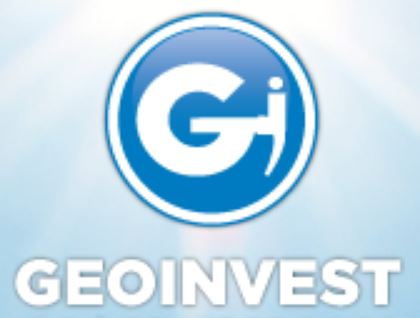SPONSORS
To date, almost all funding for sampling based on recommendations by Darnley et al. (1995) has come from government agencies, mostly national geological surveys, within those countries conducting geochemical mapping projects. In the decade-long effort that led to the publication of the two-volume Geochemical Atlas of Europe [http://weppi.gtk.fi/publ/foregsatlas/] , funds were provided by the following:
 |
Albania | Centre of Civil Geology http://www.gsa.gov.al/ |
| Austria | Geological Survey of Austria http://www.geologie.ac.at/ | |
 |
Belgium |
Geological Survey of Belgium |
| Croatia | Croatian Geological Survey http://www.hgi-cgs.hr/ | |
 |
Czech Republic | Czech Geological Survey http://www.geology.cz/ |
 |
Denmark |
Geological Survey of Denmark and Greenland |
| Estonia | Geological Survey of Estonia http://www.egk.ee/egk/ | |
 |
Finland | Geological Survey of Finland http://www.gtk.fi/ |
 |
France |
Bureau de Recherches Géologiques et Minières |
 |
Germany |
Bundesanstalt für Geowissenshaften und Rohstoffe |
 |
Hellas |
Institute of Geology and Mineral Exploration |
 |
Hungary | Geological Institute of Hungary http://www.mafi.hu/ |
 |
Ireland | Geological Survey of Ireland http://www.gsi.ie/ |
| Italy |
Istituto Superiore per la Protezione e la Ricerca Ambientale |
|
 |
Italy | Universita’ di Napoli “Federico II”http://www.fluidenv.unina.it |
| Italy | University of Padova http://www.unipd.it/en/ | |
 |
Italy | Universitá degli Studi di Siena http://en.unisi.it/ |
 |
Latvia |
Latvian Environment, Geology and Meteorology Agency |
 |
Lithuania | Geological Survey of Lithuania http://www.lgt.lt/ |
 |
Netherlands | Built Environment and Geosciences National Geological Survey http://www.tno.nl/ |
 |
Norway | Geological Survey of Norway http://www.ngu.no/ |
 |
Poland | Polish Geological Institute http://www.pgi.gov.pl/ |
| Portugal |
Instituto Nacional de Engenharia, Tecnologia e Inovação |
|
 |
Slovak Republic |
State Geological Institute of Dionyz Stur |
| Slovenia | Geological Survey of Slovenia http://www.geo-zs.si/ | |
| Spain |
Instituto Geologico y Minero de Espána |
|
 |
Sweden | Sveriges Geologiska Undersökning http://www.sgu.se/ |
| Switzerland |
Bundesamt für Landestopografie, Landesgeologie |
|
 |
United Kingdom | British Geological Survey http://www.bgs.ac.uk/ |
One of the functions of the Commission is to seek additional funding for these activities. Any company or institution interested in providing financial support for geochemical mapping projects should contact Alecos Demetriades (E-mail: alecos.demetriades@gmail.com).
Some projects also received support from the private sector: In 2005, the geotechnical company GeoInvest Ltd. (http://www.geoinvest-cy.com) financed the floodplain sediment sampling in the part of Cyprus controlled by the Republic of Cyprus.
The Cyprus Geological Survey Department (GSD) provided a jeep and a driver and prepared the collected floodplain sediment samples according to the specifications of the then IUGS/IAGC/EuroGeoSurveys project (Salminen, Tarvainen et al., 1998). The GSD also made arrangements for the collected floodplain sediment samples to be analysed with the same analytical method used for the analysis of the Cyprus Soil Geochemical Atlas samples [http://www.moa.gov.cy/moa/gsd/gsd.nsf/].
Bundesanstalt für Geowissenshaften und Rohstoffe in Germany [http://www.bgr.bund.de/] analysed the floodplain sediment samples for total element concentrations by XRF.
 http://www.moa.gov.cy/moa/gsd/gsd.nsf/
http://www.moa.gov.cy/moa/gsd/gsd.nsf/
Regarding sponsorship by:
(a) Public Welfare Foundations and Public Organisations: Their public welfare role will be in fact verified, since this particular project is truly for the common good, because the resulting data and information will be very useful to humanity as a whole, for they will contribute to the improvement of living conditions on our home planet Earth.
(b) Companies, Banks and Individuals: They will raise their public image, since they will donate part of their profits to improve the living conditions of their customers, proving, therefore, that they are not only interested in profit.
(c) Scientific Societies and Institutions: They will show to people from all walks of life that they are interested in producing information, which is not only relevant to science, but also of practical importance to people and their quality of life.
Benefits to all sponsors: Their sponsorship will be continuously advertised, through the project’s internet site (with hot links to their Websites), because the resulting information will be of interest not only to the present, but to all future generations. Their contribution will also be mentioned in all presentations at conferences and in printed material (scientific and popular magazines of large circulation), both at the national and international level. Results will also be published in books and booklets, in easy to understand language, to be used in schools for the environmental education of pupils and students, but also for the general public. Further, project information will be distributed in exhibitions with international participation, but also at international events, such as the International Day of the Environment, the International Day of Children, the International Day of Geological Inheritance, etc. All sponsors will receive, therefore, the greatest possible return for their donation.





